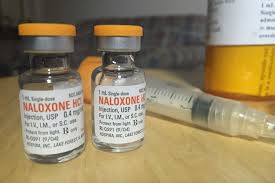
(INDIANAPOLIS) – In an effort to reduce the potential to acquire and/or spread COVID-19, the Indiana Division of Mental Health and Addiction, with support from Overdose Lifeline, will supply opioid treatment programs with lockboxes and naloxone kits. The lockboxes will enable Hoosiers, who are stable in their treatment of opioid use disorder, the ability to reduce their number of trips and time spent at an OTP to receive their daily dose of methadone.
OTPs are the only locations in the state with the authority to dispense methadone for treatment of opioid use disorder. Prior to this public health emergency, the majority of patients were required to visit the clinic every day for their medication. Every day, OTPs serve more than 10,000 Hoosiers in recovery from opioid use disorder with methadone, evidence-based therapies and other psychosocial services.
The lockboxes will secure take-home doses of methadone for people in treatment and help to reduce their exposure to COVID-19. The lockboxes will be issued in full accordance with Indiana Code for self-administered medication. The additional flexibility for OTPs and their patients is in full accordance with recent emergency guidance issued by the U.S. Substance Abuse and Mental Health Services Administration.
“It’s imperative that we take any and all measures necessary to support Hoosiers in achieving or maintaining optimal health and well-being during the global pandemic,” said Jennifer Sullivan, M.D., M.P.H., secretary of the Indiana Family and Social Services Administration, the agency which houses DMHA. “Urging Hoosiers to isolate themselves from each other is necessary, but for some it could bring unique health risks. For our fellow Hoosiers recovering from opioid use disorder, this innovative approach to delivering the medications they need daily will support them in their recovery while also helping contain the spread of COVID-19.”
Naloxone will be issued with the lockboxes as a precautionary method. Naloxone is a life-saving antidote for a person experiencing an opioid overdose. State law requires anyone administering naloxone to call 9-1-1.
This emergency initiative will be paid for utilizing state targeted response funds provided by the federal government via SAMHSA.



